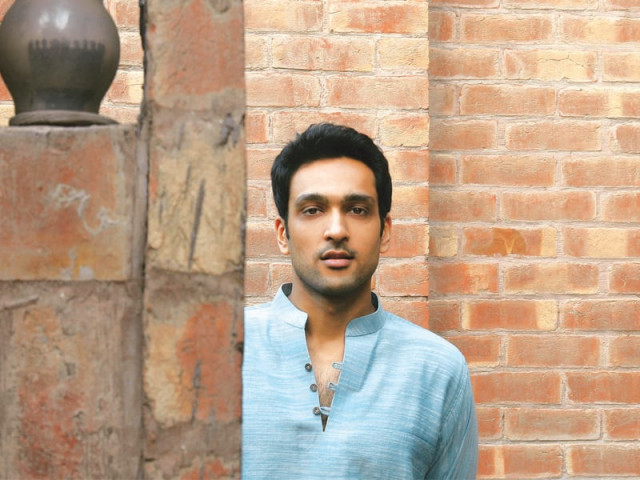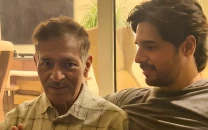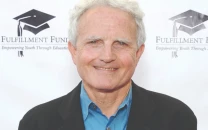We need listeners and singers to understand classical music: Ali Sethi
The writer-singer talks about his classical music journey at an intimate gathering at Café Bol.

Lahore-based author Ali Sethi likes to sing. Predominantly known for his novel The Wish Maker, Sethi has also made a name for himself as a classical singer. He performed at several occasions including a book festival in Jaipur, India and the Karachi Literature Festival 2011. Just last week, he enthralled a small group of students with his performance at Café Bol in Lahore.
The café is a space for alternative thoughts and ideas, which gives freedom for interesting discussions regarding culture and theory. In eloquent Urdu, Sethi talked about his growing experience as a classical singer, and his journey which began in May 2008. He also shared that he will record the soundtrack of The Reluctant Fundamentalist directed by Mira Nair in the next few months. Sethi also verbally committed to record a track for one of actor Naseeruddin Shah’s upcoming plays.
“People invite me more as a singer now, not as an author,” said Sethi, with a smile. “I started learning from my ustad, Naseeruddin Saami of the Delhi gharana, who spends half the month in Lahore and the other half in Karachi.” Saami is a renowned teacher who was also a part of season four of “Coke Studio”.
Sethi spends about two hours a day with Saami for riaz (practice) when he is in Lahore. Sethi also said that learning classical music and all its various facets can take a long time. “I have developed a passion for many things in this sort of music,” said Sethi. “Although I have just started, I have found the path through this music. Once you see that path, you can learn to sing pretty well.” Sethi was also guided by Punjabi ghazal singer Farida Khanum when he first began riaz.

Ali Sethi has been training as a classical singer for over four years. PHOTO: PUBLICITY
Sethi is well-versed in the history of the tradition of music, pointing out its cultural significance in the context of culture and identity. More importantly, Sethi knows that the art is something that has to be sustained along with its tradition.
“We need listeners and singers who understand classical music and can help sustain the tradition,” said Sethi. He went through several teachers, and searched with much dedication and passion before he found Saami.

Sethi explained that the South Asian classical musical is broadly defined as Karnataka in the south and khyal in the North, which has distinct longer sounds. Khyal in the North Indian region is further divided in to dhrupad and khyal.
“Dhrupad was the style that was here even after Islam came to the region; it’s important to note this because it’s not true when we say that Hazrat Ali Khusro changed everything from the raag yaman to the tabla and so on,” said Sethi, while he spoke to the group students. “For several years, that tradition of dhrupad style continued, and the modern classical music khyal only came about 200 to 300 years ago.”

Ali Sethi has been training as a classical singer for over four years. PHOTO: PUBLICITY
He also said, that raag and the creative sense that comes with it, is an exploration that has many facets. “Imagination, elaboration and improvisation are three words that come to mind when creating a raag,” described Sethi. “Take something that you are thinking of and then explore it in all its facets. Then see how you can bring this thought to life with fullness, and then move forward and make it alive; this what we look for in khyal.”
Published in The Express Tribune, December 7th, 2012.
Like Life & Style on Facebook and follow at @ETLifeandStyle for the latest in fashion, gossip, entertainment



















COMMENTS
Comments are moderated and generally will be posted if they are on-topic and not abusive.
For more information, please see our Comments FAQ